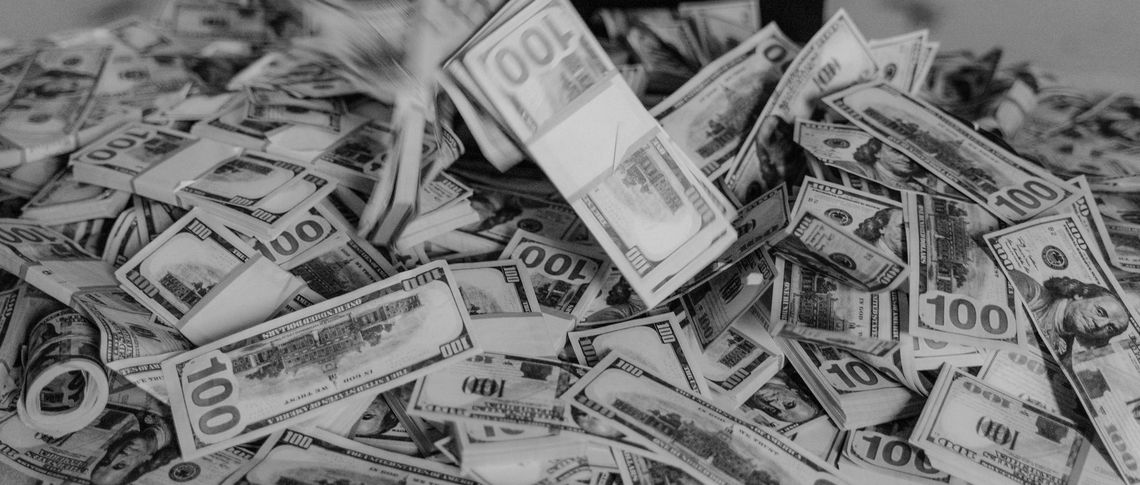The Member States of the European Union are experiencing unprecedented inflation rates. In Germany, inflation has reached double figures, at 11 per cent, while Austria is close behind on 9.3 per cent. These rates can be traced back to supply chain disruptions and fossil fuel shortages caused by Covid-19 and the invasion of Ukraine — until recently both countries were extremely energy dependent. EU citizens now face a price explosion, not only in energy supply, but in all other areas of life, including food. At the same time, companies in certain sectors are recording windfall profits, caused by shortages in strategic resources. Confronted by this breakdown in market mechanisms, the state must step in.
US energy corporation ExxonMobil is expected to register $43 bn profit this year, double that of the previous year. The same goes for oil giant BP (British Petroleum), whose $9.1 bn first-quarter profits were triple those of last year. German energy concern RWE increased profits by a third in the first half of 2022, to €2.8 bn. Austria’s ÖMV recorded a 124 per cent profit increase during the same period.
Greedflation
Joe Biden has criticised ExxonMobil’s profits and all others profiteering from the crisis: ‘we’re going to make sure everyone knows [about] Exxon’s profits. ExxonMobil made more money than God this year.’ The implication is that Exxon’s profits are not a reward for improved performance, achieved through investment and technological advance. On the contrary, they reinforce the conviction that companies in strategic oligopolistic and monopolistic sectors are exploiting consumer dependence in the crisis and demanding disproportionate prices for essential products. This has been dubbed ‘greedflation’ in the United States. Meanwhile, European Commission President Ursula von der Leyen declared war on this phenomenon in her state-of-the-Union speech: ‘in these times it is wrong to receive extraordinary record profits benefiting from war and on the back of consumers.’
The concept of greedflation calls into question the traditional view of the market, based on balancing supply and demand. On that view, unlimited corporate profit maximisation in a market economy is perfectly natural and definitely not a matter of greed. Greedflation, by contrast, raises the question of whether high sales prices are really the outcome of higher production costs. This also puts the very structure of the market under closer scrutiny. While the supply-and-demand model views inflation as an outcome of natural competition, greedflation defines it as driven by the naked rapacity of large corporations and cartels.
In the United States, while between 1979 and 2019 wage increases accounted for 61.8 per cent of price rises, since 2020 they have accounted for only 7.9 per cent.
In other words, these profits are not being made as a result of improved performance, spurred by competition, but enabled by the companies’ monopoly position. In such a market, in the absence of any alternative, prices can be driven upwards at will. This kind of monopolistic market structure is fundamentally problematic, causing even free-market supporters to doubt the viability of market self-regulation.
Corporate price setting powers in monopolised markets are so great that they accelerate inflation. Such windfall profits almost inevitably lead to a social crisis, when inflation is not cushioned by higher wages. Indeed, there has been a downward wage-price spiral since 2020. In the United States, for example, while between 1979 and 2019 wage increases accounted for 61.8 per cent of price rises, since 2020 they have accounted for only 7.9 per cent. In the current dynamic period, characterised by steep price rises and falling real wages; the question increasingly arises of how this market order can be justified, not to mention the issue of social power.
Creating a windfall tax
Strange times indeed when German and British trade unions are going into wage negotiations with demands for 10 per cent wage rises, while French industrial unions are seeking a minimum wage hike of 25 per cent?
One idea for how this wage-profit spiral can be tamed to restore social balance in price formation is a so-called excess profit tax. This might more accurately be called a windfall profit tax. Disproportionate profits with no significant performance increase or rise in production costs should be taxed away.
Meanwhile numerous European states have introduced an excess profits tax. In the United Kingdom it is 25 per cent, while Spain expects it to bring in €7 bn over the next couple of years.
Bernie Sanders put this approach on the US agenda in March 2022. But it isn’t new. An excess profits tax was imposed in the USA during the First and Second World War in order to absorb windfall corporate profits gained from the extraordinary circumstances of the wars. More recently this was applied during the 1980s oil crisis. Meanwhile numerous European states have introduced an excess profits tax. In the United Kingdom it is 25 per cent, while Spain expects it to bring in €7 bn over the next couple of years. Norway anticipates a 50 per cent boost in tax revenues this year. There is political reluctance in Austria, although the Austrian Trade Union Federation estimates that such a tax would generate €4 or 5 bn.
While some governments prevaricate, the European Union could step in. In its proposed regulation on emergency measures in response to high energy prices, the European Commission proposes a ‘solidarity levy’ on excess profits in the fossil fuel sector in 2022. This levy would amount to 33 per cent of taxable profits. From a trade union standpoint, it is clear that the myth that companies ‘earn’ high profits, regardless of market structure, is unsustainable in wartime. Or, as Ursula von der Leyen puts it: ‘profits must be shared’. Trade unions will take the Commission President at her word and ensure that this does not remain empty talk.







